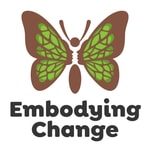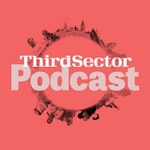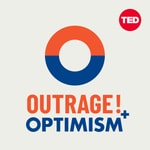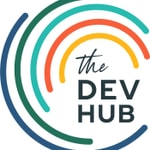The New Humanitarian – Details, episodes & analysis
Podcast details
Technical and general information from the podcast's RSS feed.
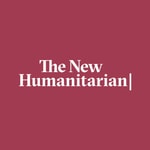
The New Humanitarian
The New Humanitarian
Frequency: 1 episode/11d. Total Eps: 100

Recent rankings
Latest chart positions across Apple Podcasts and Spotify rankings.
Apple Podcasts
🇬🇧 Great Britain - newsCommentary
31/07/2025#69🇨🇦 Canada - newsCommentary
29/07/2025#97🇬🇧 Great Britain - newsCommentary
29/07/2025#70🇬🇧 Great Britain - newsCommentary
28/07/2025#85🇩🇪 Germany - newsCommentary
28/07/2025#87🇩🇪 Germany - newsCommentary
27/07/2025#55🇬🇧 Great Britain - newsCommentary
25/07/2025#68🇩🇪 Germany - newsCommentary
25/07/2025#99🇩🇪 Germany - newsCommentary
24/07/2025#72🇬🇧 Great Britain - newsCommentary
23/07/2025#97
Spotify
No recent rankings available
Shared links between episodes and podcasts
Links found in episode descriptions and other podcasts that share them.
See allRSS feed quality and score
Technical evaluation of the podcast's RSS feed quality and structure.
See allScore global : 53%
Publication history
Monthly episode publishing history over the past years.
A Sudanese collective’s care in Cairo | First Person
jeudi 29 août 2024 • Duration 12:47
“We came mainly seeking safety, seeking to live a decent life. But then we found another war”
Our First Person narratives dig into the humanity of humanitarian challenges. This episode tells a story of the 15,000 Sudanese people living in Egypt’s Masaken Osman area. When the war broke out in April 2023, these tower blocks on the dusty outskirts of Cairo became home to a group of refugees. Meet them as they gather to discuss their current challenges and collective efforts to overcome them.
The New Humanitarian aims to amplify the voices of refugees, asylum seekers, and people affected by conflict and disaster – placing them at the centre of the conversations about the policies and events that shape their lives. Find more first-person stories at TheNewHumanitarian.org.
In Syria, 'waiting for war' | First Person
jeudi 22 août 2024 • Duration 13:05
Our First Person narratives dig into the humanity of humanitarian challenges.
In this episode, Zeina Shahla, a reporting fellow with The New Humanitarian based in Damascus expresses what it is like to live in the shadow of war. With everyone in Syria living on edge since the political leader of Hamas, Ismail Haniyeh, was assassinated last month in Tehran, Shahla worries if a regional war is going to break out.
The New Humanitarian aims to amplify the voices of refugees, asylum seekers, and people affected by conflict and disaster – placing them at the centre of the conversations about the policies and events that shape their lives. Find more first-person stories at TheNewHumanitarian.org.
Faith as a way forward | What’s Unsaid
jeudi 20 juin 2024 • Duration 24:46
Viewed from Western aid capitals, the international humanitarian system is overwhelmingly secular. But for much of the rest of the world, people’s lived realities are very different. As Amjad Mohamed Saleem, a development and peacebuilding entrepreneur tells host Obi Anyadike, being a person of faith in the aid industry is a “dynamic struggle”.
What’s Unsaid is a bi-weekly podcast by The New Humanitarian, where we explore open secrets and uncomfortable conversations around the world’s conflicts and disasters.
‘Culture of solidarity’: Why I’m hosting Congolese relatives who fled the M23 conflict | First Person
jeudi 13 juin 2024 • Duration 12:03
One and a half million people have been uprooted by the conflict between the M23 rebel group and the national army in eastern Democratic Republic of the Congo. Many are now living with host families, little-heralded frontline responders who play a central role in relief efforts across the region. Nicholas Bahati Ndoolé, a humanitarian worker based in the city of Goma, is one such host. In this First Person essay, he shares the many challenges his family faces, and explains why he feels he must shelter his relatives.
The continuing conflict in the DRC is featured in The New Humanitarian’s annual list of ten crises that demand your attention now, which highlights places in the world where needs are rising, aid budgets have been cut or are insufficient, and where people feel forgotten by the international community. Over the coming months, our First Person series will feature aid workers and people affected by the crises on this year’s list.
An interview with the UN’s humanitarian chief | Rethinking Humanitarianism (REPLAY)
jeudi 6 juin 2024 • Duration 51:51
*As Martin Griffiths serves his last month at the helm of OCHA, take another listen to this episode from January 26, 2022 on his vision for the future of humanitarian aid, and his hopes for a non-British successor.
____
In the final episode of Season 2 of the Rethinking Humanitarianism podcast, host Heba Aly sits down with UN Under-Secretary-General for Humanitarian Affairs Martin Griffiths to discuss his priorities in the role, how he intends to address unequal power dynamics in the aid sector, the increasing influence of donors, and why humanitarians should push back against an ever-expanding scope of activity.
____
Got a question or feedback? Email podcast@thenewhumanitarian.org or have your say on Twitter using the hashtag #RethinkingHumanitarianism.
____
SHOW NOTES
Does India know what’s ahead? | What’s Unsaid
jeudi 30 mai 2024 • Duration 24:28
India’s incumbent Prime Minister Narendra Modi has been accused of hate speech against Muslims during the election campaign. But Harsh Mander, a writer and peace worker, tells host Ali Latifi that Muslims are being mistreated and discriminated against at all levels of civil and political society. With results looming, he warns that Modi’s India is starting to head in the direction of Nazi Germany.
What’s Unsaid is a bi-weekly podcast by The New Humanitarian, where we explore open secrets and uncomfortable conversations around the world’s conflicts and disasters.
Venezuelans Are So Tired of Living on the Edge | First Person
jeudi 23 mai 2024 • Duration 10:15
After 25 years as an international humanitarian worker, Susana Raffalli returned to Venezuela only to find herself at the centre of a humanitarian, political, and economic crisis in her own backyard. She describes the devastating impact that 10 years of crisis has had on Venezuelans and argues that the Latin American country has been largely neglected by the international aid sector.
The ongoing turmoil in Venezuela is featured in The New Humanitarian’s annual list of ten crises that demand your attention now, which highlights places in the world where needs are rising, aid budgets have been cut or are insufficient, and where people feel forgotten by the international community. Over the coming months, our First Person series will feature aid workers and people affected by the crises on this year’s list.
Let refugees lead | What’s Unsaid
jeudi 16 mai 2024 • Duration 23:00
Humanitarian organisations often push an image of refugees as passive victims in need of help. But refugees themselves say they have voices and need to be listened to. Refugee advocate Jean Marie Ishimwe tells host Obi Anyadike why it’s time for the refugee-led organisation, or RLO, ‘revolution’.
What’s Unsaid is a bi-weekly podcast by The New Humanitarian, where we explore open secrets and uncomfortable conversations around the world’s conflicts and disasters.
‘Give us the money’: Aid as reparations | Rethinking Humanitarianism (REPLAY)
jeudi 9 mai 2024 • Duration 56:45
*This episode was originally published on December 14, 2022.
The call for reparations, which has long reverberated in former colonies, is now gaining momentum in the aid and philanthropy sectors, too.
It’s a call that rejects the idea of aid as charitable giving, and instead reframes it as justice for the ravages of colonialism and imperialism.
But like similar conversations in the United States around slavery, the idea of international reparations for colonialism is a political hot potato. This, despite the many precedents for reparations programmes, including German reparations paid to Holocaust survivors.
Can international reparations be a way forward towards a more equitable world order, or are they too politically charged to succeed, perhaps even counter-productive?
To discuss these thorny questions, Rethinking Humanitarianism host Heba Aly is joined by Uzo Iweala, CEO of the Africa Center; Thomas Craemer, associate professor of public policy at University of Connecticut; and Kizito Byenkya, director of campaigns for the Open Society Foundations.
—————
If you’ve got thoughts on this episode, write to us or send us a voice note at podcast@thenewhumanitarian.org.
SHOW NOTES
- Loss and damage: Views from the ground at COP27
- Will countries hit by climate change finally get payouts at COP27?
- Why climate justice requires reparations
- Reparations as Philanthropy: Radically Rethinking 'Giving' in Africa | Le Monde
- Imperial Reckoning, The Untold Story of Britain's Gulag in Kenya
- The New Reparations Math | UConn Magazine
Migrants and refugees are easy political targets | What’s Unsaid
jeudi 2 mai 2024 • Duration 25:40
A visit to Inzargai refugee registration centre in Afghanistan’s Kandahar province prompts host Ali Latifi to explore how governments around the world are weaponising anti-refugee and anti-immigrant rhetoric. Economic and security “frustrations are absolutely real”, Professor Muhammad Zaman, director of the Center on Forced Displacement at Boston University, tells him. “The outsider is an easy and convenient way to let some of that steam out, without really solving the problems.”
What’s Unsaid is a bi-weekly podcast by The New Humanitarian, where we explore open secrets and uncomfortable conversations around the world’s conflicts and disasters.
